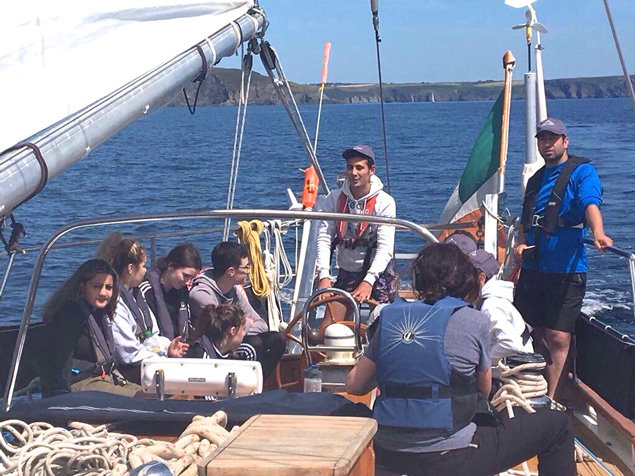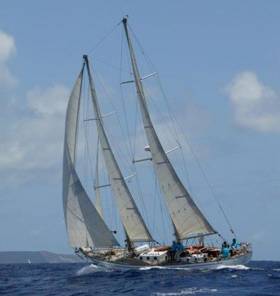Displaying items by tag: sail training vessel
Syrian Refugees & Ballaghaderreen Youths Form Bonds at Sea
Five Irish young people from Ballaghaderreen, Co. Roscommon and five Syrian refugee young people also living in Ballaghaderreen, nominated by UNHCR Ireland, are currently taking part on a life-changing sailing voyage on board of the Spirit of Oysterhaven, Ireland’s largest sail training vessel. The five Syrian refugees were brought to Ireland as part of the Irish Refugee Resettled Programme.
The 10 sail trainees departed from Cork on Sunday, and will be reaching Glandore, their final destination, at lunchtime on Friday, 21st July. The voyage brings the young people together both as ship-mates and friends.
During the 5 days of the voyage, the participants have been learning how to sail a ship and how to navigate in challenging Irish coastal waters, making their own decisions about what course to plot over the week. In the process they learn the vital importance of working as a team 24-hours a day while assuming individual responsibilities, as they take the helm, set sails, stand watches, cook for each other and keep the vessel ship-shape.
 The Ballaghaderreen crew aboard Sprit of Oysterhaven in the gentle weather earlier this week. They’ll have experienced more rugged conditions by the time they reach Glandore tomorrow (Friday).
The Ballaghaderreen crew aboard Sprit of Oysterhaven in the gentle weather earlier this week. They’ll have experienced more rugged conditions by the time they reach Glandore tomorrow (Friday).
Overcoming the challenges of life at sea also enables the young people to believe in their own potential, while developing relationships amongst their own peers in the new community in which they live. Sail Training induces then the development of respect, understanding and work ethic, bringing tangible benefits to communities in Ireland.
Shauna Gillan, founder of Safe Haven Ireland, says
“Integration is so important in modern Ireland - sail training is an ideal way to foster bonds between communities. Participants on board this week are from one local area – Ballaghaderreen. The young people on this voyage therefore made new friends from their own new community. The integration benefits will ripple through Ballaghaderreen once they return to dry land through their relationships with each other, their parents and wider social networks.”






























































